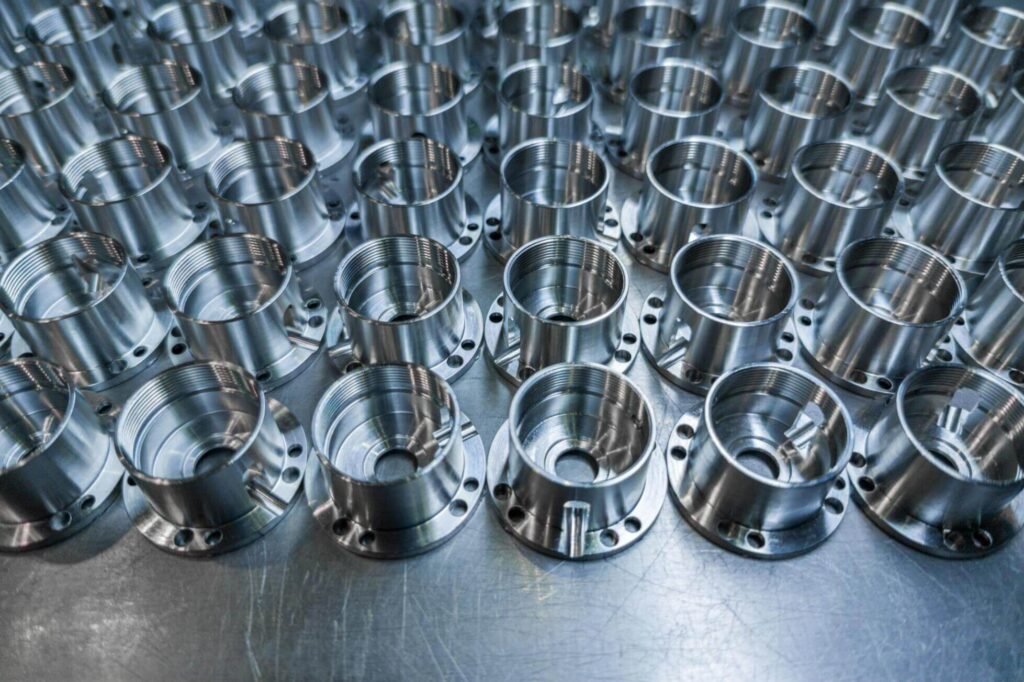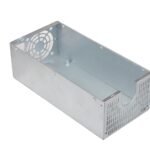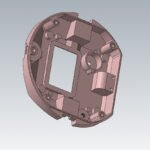CNC machining can produce parts from various materials such as metals and plastics. It is not easy to pick material because of the variety of materials available.
CNC milling and turning are possible with a wide range of metal alloys. We should not overlook cost, workability, strength, and weight considerations.
All these things play a role in determining the best materials. We will discuss the best CNC machining plastics in this article.
Choosing the Right Plastics in CNC Machining!
CNC machining is a cheap way to standardize products in manufacturing. If you want smooth and long-lasting tools, you need to use high-quality CNC Machining tools.
You should pick a suitable plastic CNC machining tool for the machined material. When purchasing a CNC machine, here are a few things to keep in mind.
It would help to focus on machine weight, working radius, and materials. A CNC Machine shop can work with various types of plastic if you are seeking plastic parts. Plastics come in many forms, and each has its advantages and disadvantages.
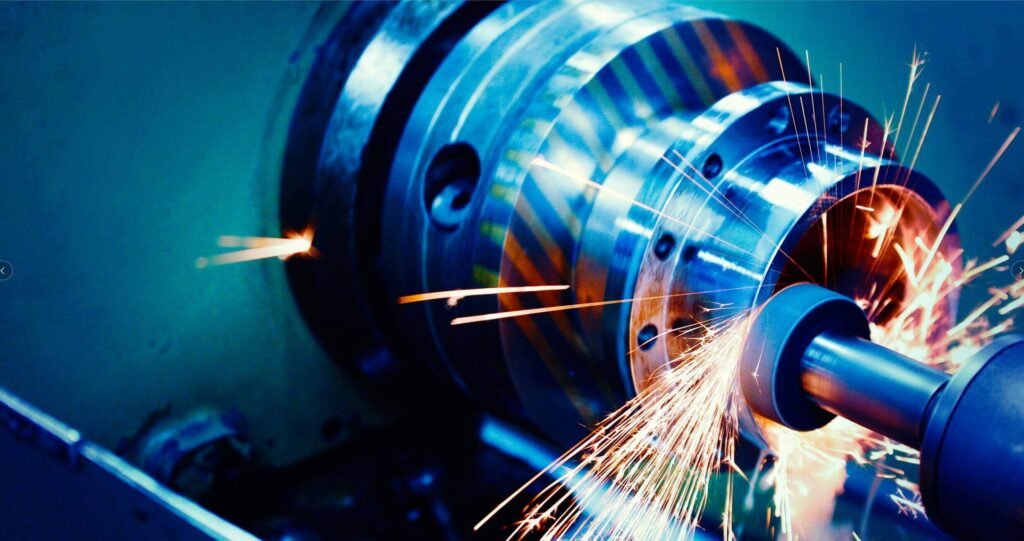
1. Acrylonitrile Butadiene Styrene (ABS)
We use ABS in CNC plastics because of its qualities and affordable price. ABS is a low-cost machining plastic with excellent properties.
Due to end-use applications, people have turned to this material for use. ABS is durable and resistant to heat and chemicals in its qualities. Parts made from ABS have a smooth surface.
It is due to the material’s excellent machinability. It is also to electroplating, surface metallization, bonding, and other post-processing techniques.
Benefits:
· Strength
· Durable
· High Heat Resistance
· Good Machinability
Drawbacks:
· Poor Weathering
· Solvent Resistance
Common Applications:
· Consumer Products
· Recorders and Many Other Musical Instruments
· Household Vacuums
2. Polytetrafluoroethylene (PTFE)
It has a range of qualities beneficial for commercial product teams. Due to chemical and temperature changes, UV, weathering, and fatigue, it is helpful.
Manufacturers use it in non-stick pan coatings, gaskets, and even heart patches. PTFE has outstanding anti-adhesion qualities.
For example, PTFE has the lowest friction coefficient of any solid substance. PTFE is one of the most corrosion-resistant polymers in existence.
Its qualities are inferior to those of other engineering polymers at room temperature. But, it may improve this with the addition of suitable fillers.
PTFE comes in two-inch-thick plates or rods. There are restrictions to the thickness of items manufactured using PTFE. Creep and abrasion are also problematic for PTFE.
Benefits:
· Chemical Resistant.
· High impact strength.
· UV/weather resistant.
· Good electrical insulator.
Drawbacks:
· High Coefficient of Expansion
· Challenging to Achieve Tight Tolerances
· Poor Dimensional Stability
Common Applications:
· Medicine
· Food Industry
· Science
· Aerospace
3. POM
Acetal and Delrin, often known as Polyolefin (POM), are two of the most used plastics for CNC machines. It is costlier than ABS, but it is more accessible to machines. It affects the entire cost of machining.
The benefits of POM are excellent wear resistance, minimal friction, and dimensional stability. Applications like gear bearings and pipe components are possible due to POM features.
Benefits:
· Great Comprehensive Properties
· High Rigidity and Hardness
· Excellent Tensile Strength
Drawbacks:
· Poor Resistance to Acids
· Difficult to Bond
Common Applications:
· Mechanical Gears
· Guiding Elements
· Connector Components
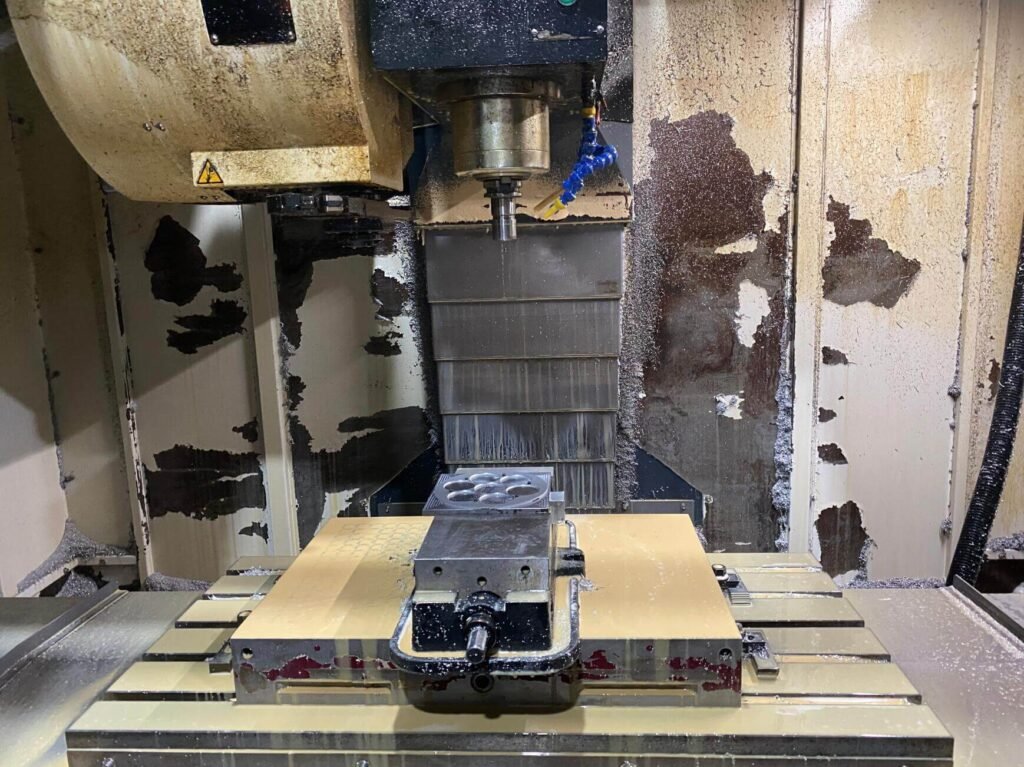
4. Nylon 66
Nylon is a large group of low-friction engineering thermoplastics known as polyamide (PA). The features include muscular impact strength, excellent abrasion, and outstanding mechanical qualities.
Its strength and durability make Nylon 66 an excellent material for CNC machining. The typical applications of this are automobiles and medical equipment.
Oil and gasoline do not affect this plastic’s inherent performance, durability, or toughness. Despite this, it loses most of its dimensional stability when exposed to moisture. Besides, strong mineral acids have a detrimental effect.
Benefits:
· Strong Temperature Resistance.
· Higher-Strength.
· Low Moisture Absorption.
· Higher stiffness.
Drawbacks:
· Low Dimensional Stability
· Takes on Moisture
Common Applications:
· Wear Pads
· Guide Wheels
· Slide Bearings.
5. PC
Transparent thermoplastic Polycarbonate, or PC, has a high level of strength and rigidity. The exceptional impact resistance of PC is generally the most sought-after material attribute.
CNC machining of PC is also affordable because of PC’s high machinability. Despite this, raw PC, which is available in rod or plate form, is the most expensive plastic for CNC machining.
Manufacturers use it for plastic machining applications in the automobile sector. It may come in handy to make various automotive parts such as pumps, instrument panels, and valves. We also use it in industries to create protective gear, medical gadgets, and other things.
Benefits:
· Transparent
· Lightweight
· Heat Retardant
Drawbacks:
· Susceptible to Hydrocarbon Wear
· Exposure to UV Rays can make it yellow
Common Applications:
· Safety Goggles
· Surgical Implements
· Circuit Breakers
6. Polyetheretherketone (PEEK)
PEEK is a high-performance thermoplastic with a unique blend of mechanical qualities. Chemicals, creep, wear, liquids, fatigue, and temperatures up to 260°C (480°F) do not affect this material.
It is also light and durable aside from insoluble in all primary solvents. We can recycle PEEK and recycle it in biological systems. We can use PEEK in CNC machining in place of metal, much like nylon.
PEEK is not UV-resistant and does not hold up well when exposed to halogens or sodium vapor. It is one of the more expensive CNC machining plastics available.
Benefits:
· High-Performance Thermoplastic
· Insoluble in all Major Solvents
Drawbacks:
· Not UV Resistant
· Doesn’t hold up when Exposed to Halogens or Sodium Vapor
Common Applications:
· Piston Units in Jet Engines
· Dental Syringes
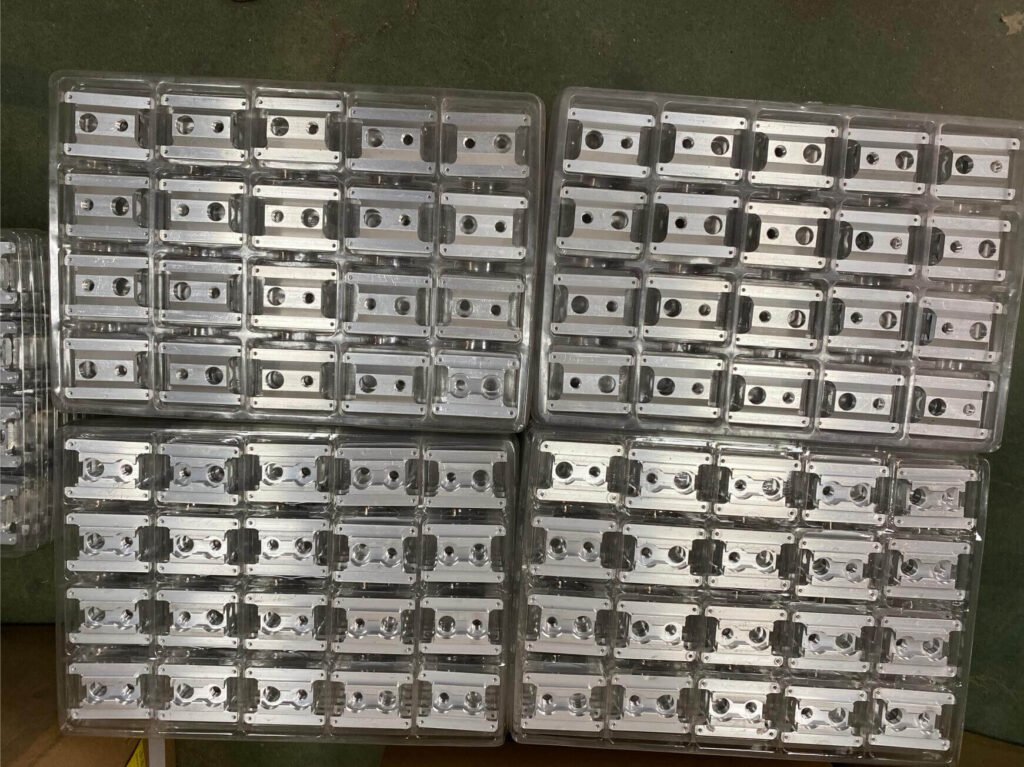
7. Ultra-High Molecular Weight Polyethylene (UHMW)
Unlike other plastics, UHMW is durable and resistant to abrasion and wear. This material is a popular choice for product development in industrial plastics.
We should not keep it in high-load applications due to its high creep susceptibility.
We should not expose it to temperatures more than 80 to 100°C while developing new products. Applications of UHMW are Truck bed liners and food processing machinery components.
Benefits:
· High Impact Strength
· Low coefficient of friction
· Machinability
· Chemical resistant
· Self-lubricating
Drawbacks:
· High Creep Susceptibility
· Avoid Exposure to High Temperatures
Common Applications:
· Truck Bed Liners
· Food Processing Machinery Components
· Wear strips
8. Polypropylene (PP)
Polypropylene is an excellent material for CNC machining because of its low cost and ease of use. Polypropylene is chemical resistant in corrosive conditions.
PP’s impact strength is lower than that of LDPE and HDPE, but its tensile strength more than makes up for it. PP, like PTFE, has a three-inch sheet limit for machining, which limits the size of the finished product.
Benefits:
· Cost-Effective
· Chemical Resistant
· Good Tensile Strength
Drawbacks:
· Lower Impact Strength
· In Aromatics and Chlorinated Solvents, it has Poor Resistance
Common Applications:
· Plastic Packaging
· Plastic Parts for Machinery and Equipment
9. Low-Density Polyethylene (LDPE)
Corrosion resistance and Low-temperature flexibility are hallmarks of LDPE. It is a durable but flexible CNC machining plastic. It is accessible to weld and heat seal, and it is resistant to chemicals.
Orthotics and prosthetics are the primary applications for LDPE. We should not use it for applications that need rigidity or heat resistance. Available LDPE has thickness restrictions, which further restrict part size.
Benefits:
· Stain-Resistant
· Electrical Insulation
· Corrosion Resistance
Drawbacks:
· Less Heat Resistant
· High Permeable
Common Applications:
· Grocery Bags
· Plastic Film or Wrap
· Flexible Packaging Material
· Food and Beverage Containers
Conclusion
It is less expensive than metal due to the reduced cost of plastic raw materials. Manufacturers may do Prototyping CNC machined plastics due to this reason.
Our selection of CNC machining plastics includes a variety of price points. Still, some are more affordable than others are. Companies should design Prototypes and end-use parts with CNC machining costs in mind. QBH Technology offers top-notch CNC services. For any kind of your requirements, you can contact us.

